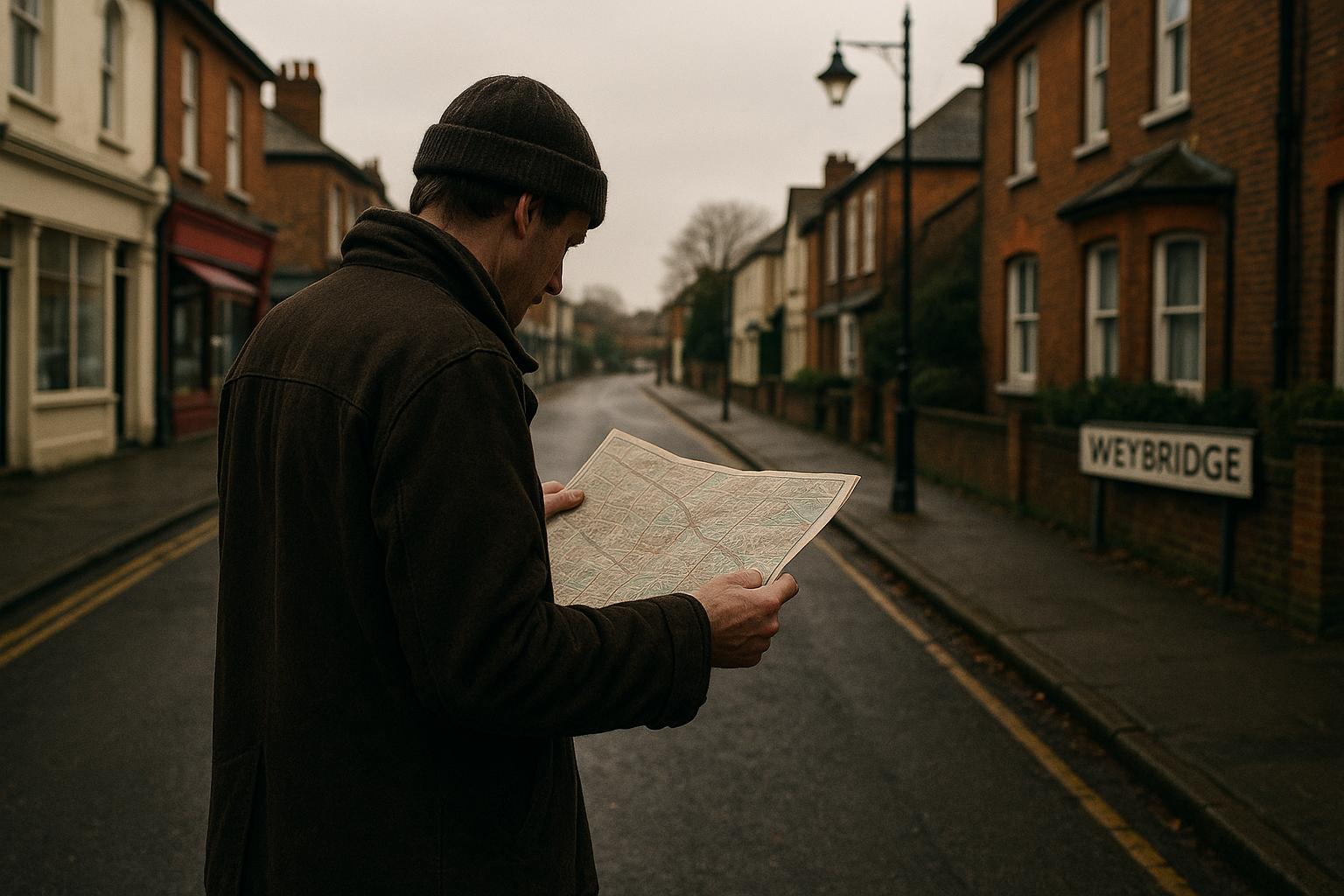When Ripon Ray, a 44-year-old CEO of a debt consultancy, had his offer accepted on a £1.8 million home in Weybridge, Surrey, he initially felt triumphant. Having lived all his life in London’s Tower Hamlets and later Hackney, the decision to move to this exclusive Surrey town came after a terrifying robbery at his London home and rising frustrations with the overcrowded city environment and its polluted air. Weybridge, known for its celebrity and billionaire residents and idyllic views over the River Wey, seemed like an ideal escape. “You’ve got others who are also very wealthy living there. I thought, well, it’s great, why can’t I live there?” Ripon told the Daily Mail.
However, the reality of his new life in Weybridge proved far more challenging than expected. The slower pace, which many seek in country living, felt stifling to Ripon, who described it as “boring” and confessed to shedding “tears in his pillow” at nights. He struggled to adapt to the quietness and the lack of constant stimulation he had grown used to in Hackney’s busy, culturally diverse setting. His appreciation for Weybridge’s peaceful surroundings clashed with his ADHD-driven need for creativity, vibrancy, and a bustling social scene. “In Hackney, you have lots of creatives, you have graffiti everywhere, you’ve got artists everywhere, you have inspiration everywhere, and I felt I was part of it,” he reflected. The local food scene in Weybridge, by contrast, felt limited to him compared to the rich, diverse culinary offerings of East London.
Beyond lifestyle adjustments, Ripon encountered deeper social challenges. As a man of Bengali heritage who had always felt at home in the multicultural milieu of Hackney, he found the predominantly white and less diverse community in Weybridge somewhat unwelcoming. He experienced uncomfortable stares and realised that some neighbours held political views at odds with his own, even encountering supporters of far-right marches in the area. He described feeling “really insecure” in this new environment, recognising that he had left behind more than just a city; he left behind a sense of belonging and community. This social isolation was compounded by the physical distance—over an hour’s drive—from London, which made it harder to maintain connections with friends and family.
To bridge this divide, Ripon established his consultancy business in London, giving him a legitimate reason to commute back to the city three times a week. This arrangement allowed him some connection to his former life, though he acknowledged the “huge physical difference between London and Weybridge.” He also put considerable effort into rekindling friendships, adapting to the more scheduled and less spontaneous nature of socialising outside the city. The experience, he said, felt like “a grieving, bereavement process.”
Despite these struggles, Ripon demonstrated resilience and determination to make the new location work for him and his partner. Recognising that his presence called for mutual adjustment, he adopted a confident attitude to overcome feelings of exclusion and refused to “feel sorry” for himself due to his differences. He began to invest in personal hobbies, such as photographing the serene local scenery and enjoying boat rides on the River Wey, embracing some pleasures of his serene surroundings. With neighbours now included in a friendly WhatsApp group, Ripon has started building new social bonds and exploring what Weybridge has to offer beyond its quiet exterior.
Weybridge itself is known as a well-connected town with a range of amenities, including shops, dining venues, and attractions such as the Mercedes-Benz World and the Brooklands Museum. The town's transport links to London are relatively good, with train journeys from central London stations like Waterloo taking about an hour, though the commute can be longer depending on starting points, such as Hackney Wick. This connectivity supports residents who, like Ripon, need to maintain ties to London for work or social reasons.
The practicalities of relocating to Weybridge are supported by numerous professional moving companies specializing in London-to-Surrey transitions. These firms offer insured and efficient services tailored to meet the logistical challenges associated with moving to an area like Weybridge, where narrow residential streets and secure complexes can pose difficulties for large vehicles. Many also provide additional support such as packing, unpacking, and temporary storage to ease the stress of relocation.
Ripon’s experience illuminates a broader narrative faced by many urban transplants seeking refuge in the countryside, especially those from diverse, bustling city environments. While the allure of space, peace, and prestige in towns like Weybridge is strong, the cultural and social adjustments can be profound and challenging. The quiet countryside may offer fresh air and natural beauty, but it lacks the eclectic energy and diversity found in London’s inner boroughs—a trade-off with significant implications for identity and belonging.
Ultimately, Ripon’s story is one of navigating this complex adjustment, balancing a yearning for the dynamism of city life with the appeal of the country’s tranquility. His decision to maintain his London connections while gradually integrating into his Surrey community may serve as a model for others contemplating a similar move, highlighting the importance of both self-acceptance and a willingness to engage with new environments on their terms.
📌 Reference Map:
- Paragraph 1–3 – [1]
- Paragraph 4 – [1], [4], [6], [7]
- Paragraph 5 – [1], [2], [3], [5], [4]
- Paragraph 6–8 – [1], [4], [6], [7]
Source: Noah Wire Services
